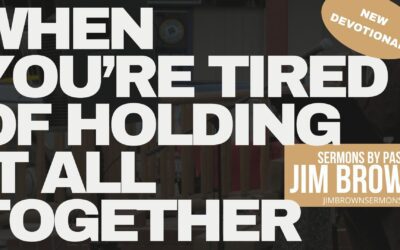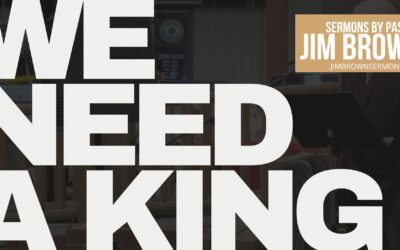FEBRUARY 14, 2025
EP 13: YAHWEH OR MY WAY | Lean Not On YOUR OWN UNDERSTANDING
Exodus 1-17
You can’t rush Yahweh. No matter how much we try to take control, His timing is perfect—even when we’re stuck, waiting, or facing an impossible road ahead. The Red Sea crossing wasn’t an accident; it was part of God’s plan. The Israelites had to choose: lean on their own understanding or trust Yahweh completely. When life feels overwhelming, will you surrender and let Yahweh lead the way? Listen in and find the freedom that comes from trusting God’s way over our own.
Sermon Study Resources
Sermon Notes
Your Subtitle Goes Here
Sermon Notes:
Yahweh Or My Way | Lean Not on Your Own Understanding
Introduction: Yahweh Way or My Way?
We live in a world that teaches us to rely on our own understanding, but Scripture reminds us that trusting Yahweh—the great I Am—is the key to victory. From the Israelites’ deliverance in Exodus 1-17 to the Red Sea crossing, this sermon highlights the importance of surrendering to God’s plan and trusting His timing.
As we follow the story of Moses, we’ll see that waiting on God can be challenging, but it’s in the waiting where faith and trust are built. God’s plan is always greater than anything we could design for ourselves.
God’s Perfect Timing: Waiting on God
“God is not in a hurry.” This message is woven throughout Scripture, and the Israelites experienced it firsthand. After Joseph’s leadership in Egypt, they waited 400 years in slavery before God acted.
Exodus 2:24-25 (NLT)
God heard their groaning, and he remembered his covenant promise to Abraham, Isaac, and Jacob. He looked down on the people of Israel and knew it was time to act.
- Just as the Israelites waited, we often feel stuck waiting for answers. But Yahweh’s timing is perfect. Trusting Him involves letting go of the urge to rush His plan.
- Focus Point: Waiting on God is not wasted time—it’s part of Biblical faith.
Human Weakness and God’s Greatness: Lean Not on Your Own Understanding
When God called Moses to lead His people out of Egypt, Moses was reluctant and full of doubts. He relied on his own reasoning and saw only his inadequacies. But God reminded him of something critical: “It’s not about your ability. It’s about My power.”
Exodus 3:14 (NLT)
God replied to Moses, “I Am Who I Am. Say this to the people of Israel: I Am has sent me to you.”
- This name, “I Am” (Yahweh), reveals God’s eternal presence and sovereignty.
- Key Takeaway: Our self-sufficiency blocks God’s plan. We must learn to surrender to God and trust that He is working through us even when we feel inadequate.
- Proverbs 3:5-6 (NLT) reminds us:
Trust in the Lord with all your heart; do not depend on your own understanding. Seek his will in all you do, and he will show you which path to take.
Deliverance: God Fights Our Battles
The Red Sea crossing in Exodus 14 is one of the most powerful examples of God fighting for His people. The Israelites faced an impossible situation: Pharaoh’s army behind them and the Red Sea in front of them. In their fear, they turned to Moses.
Exodus 14:13 (NLT)
But Moses told the people, “Don’t be afraid. Just stand still and watch the Lord rescue you today. The Egyptians you see today will never be seen again.”
- Focus Point: The Red Sea was not a mistake or an obstacle—it was part of God’s plan. When we face our own “Red Sea” moments, we need to stop striving and let Yahweh lead us through.
The Power of Surrender: Yahweh or My Way?
Throughout their journey, the Israelites struggled to leave behind their old ways and fully surrender to God’s plan. Their complaints and doubts were signs of their desire to control their circumstances.
- Complaining is verbal doubt—it’s a way of saying, “God doesn’t know what He’s doing.”
- The solution isn’t just to stop complaining but to acknowledge God’s presence in every situation.
Exodus 16:8 (NLT)
The Lord will give you meat to eat in the evening and bread in the morning, for he has heard all your complaints against him. Yes, your complaints are against the Lord, not against us.
When we choose Yahweh’s way over our way, we experience His grace and deliverance. Jesus Christ, the same yesterday, today, and forever, fights our battles when we surrender fully to Him.
Worship God in the Midst of Deliverance
After the miraculous Red Sea crossing, the Israelites did something significant—they worshiped. In Exodus 15, they sang praises to Yahweh for His deliverance.
- Worship God in both the waiting and the victory. Praise builds faith and reminds us of God’s power and presence.
- Key Takeaway: Worship isn’t just something we do after God delivers us—it’s something that sustains us while we’re waiting.
The Blood of the Lamb: Redemption Through Christ
The Passover in Exodus 12 points directly to Christ’s ultimate sacrifice. Just as the blood of the lamb protected the Israelites from death, the blood of Jesus protects and redeems us from the bondage of sin.
Exodus 12:12-13 (NLT)
On that night I will pass through the land of Egypt and strike down every firstborn son and firstborn male animal in the land of Egypt. I will execute judgment against all the gods of Egypt, for I am the Lord! But the blood on your doorposts will serve as a sign, marking the houses where you are staying. When I see the blood, I will pass over you.
- Focus Point: The blood of Christ applied to the doorposts of our hearts offers us redemption and a fresh start.
Application: Trusting Yahweh in Hard Times
- Are you facing your own “Red Sea” moment?
- Are you waiting on God and feeling like the answer will never come?
- Do you struggle to surrender your plans and trust God fully?
Remember the lesson of Moses and the Israelites:
- Trust that Yahweh, the great I Am, is working even when you can’t see it.
- Let go of the urge to rely on your own understanding and surrender to God.
- In your waiting, worship God and watch Him fight your battles.
- Jesus Christ, the same yesterday, today, and forever, is still leading His people through the impossible.
Conclusion: Yahweh’s Way Leads to Redemption
The Book of Exodus is known as the Book of Redemption because it shows how God’s people were delivered from slavery into freedom. Today, we can experience the same deliverance through Jesus Christ. When we surrender our plans to Yahweh and trust His timing, we will see His power at work in every area of our lives.
Hebrews 13:8 (NLT)
Jesus Christ is the same yesterday, today, and forever.
Let’s stop asking, “My way or Yahweh’s way?” and fully commit to following Yahweh’s way.
Bible Verses
Your Subtitle Goes Here
Bible Verses
Hebrews 13:8 (NLT)
Jesus Christ is the same yesterday, today, and forever.
Genesis 12:3 (NLT)
I will bless those who bless you and curse those who treat you with contempt. All the families on earth will be blessed through you.
Exodus 2:24-25 (NLT)
God heard their groaning, and he remembered his covenant promise to Abraham, Isaac, and Jacob. He looked down on the people of Israel and knew it was time to act.
Exodus 3:14 (NLT)
God replied to Moses, “I Am Who I Am. Say this to the people of Israel: I Am has sent me to you.”
John 8:58 (NLT)
Jesus answered, “I tell you the truth, before Abraham was even born, I Am!”
Exodus 5:2 (NLT)
“Is that so?” retorted Pharaoh. “And who is the Lord? Why should I listen to him and let Israel go? I don’t know the Lord, and I will not let Israel go.”
Exodus 6:6-8 (NLT)
“Therefore, say to the people of Israel: ‘I am the Lord. I will free you from your oppression and will rescue you from your slavery in Egypt. I will redeem you with a powerful arm and great acts of judgment. I will claim you as my own people, and I will be your God. Then you will know that I am the Lord your God who has freed you from your oppression in Egypt. I will bring you into the land I swore to give to Abraham, Isaac, and Jacob. I will give it to you as your very own possession. I am the Lord!’”
Exodus 12:12-13 (NLT)
On that night I will pass through the land of Egypt and strike down every firstborn son and firstborn male animal in the land of Egypt. I will execute judgment against all the gods of Egypt, for I am the Lord! But the blood on your doorposts will serve as a sign, marking the houses where you are staying. When I see the blood, I will pass over you. This plague of death will not touch you when I strike the land of Egypt.
Exodus 14:13 (NLT)
But Moses told the people, “Don’t be afraid. Just stand still and watch the Lord rescue you today. The Egyptians you see today will never be seen again.”
Proverbs 3:5-6 (NLT)
Trust in the Lord with all your heart; do not depend on your own understanding. Seek his will in all you do, and he will show you which path to take.
Sermon Slides
Your Subtitle Goes Here
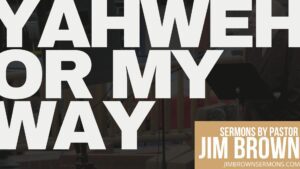

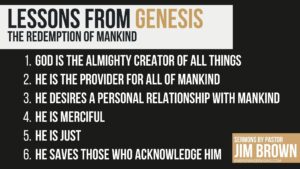

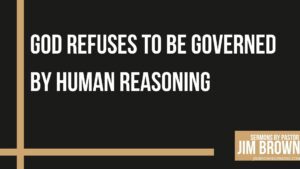
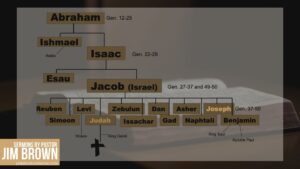
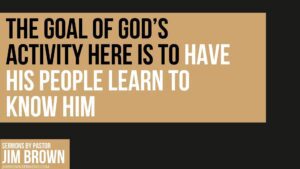
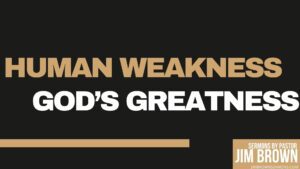
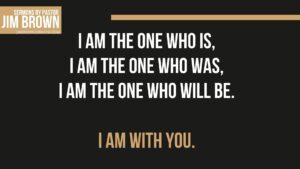


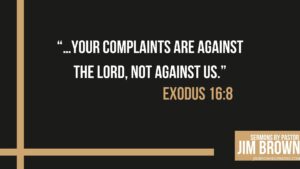
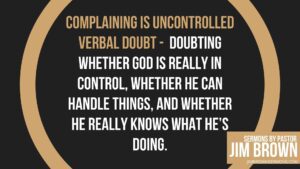


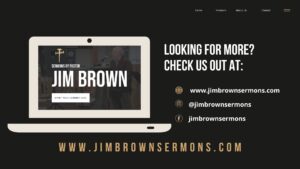
Related Song List
Your Subtitle Goes Here
Recommended Resources
Your Subtitle Goes Here
Books:
• “Trusting God: Even When Life Hurts” by Jerry Bridges
This book explores the sovereignty of God and encourages readers to trust Him, even during difficult times.
• “Meant for Good: The Adventure of Trusting God and His Plans for You” by Megan Fate Marshman
This book emphasizes embracing God’s plans and trusting His goodness, even when circumstances are challenging.
Articles and Blog Posts:
• “The Midwives Who Feared God”
This sermon explores Exodus 1:17, highlighting the courage of the Hebrew midwives and their trust in God’s sovereignty.
• “Exodus 17:1-7 – Water Strike”
An article discussing the Israelites’ experience in the wilderness and the importance of trusting God’s provision.
Some of these above links in this post maybe affiliate links, and we may earn a small commission at no additional cost to you. These are resources that we would recommend regardless of whether we earn a commission or not. The income generated helps cover website maintenance costs, allowing us to continue sharing sermons, resources, and content with you. We appreciate your support!
Sermon Transcript
Your Subtitle Goes Here
Transcript: Yahweh Or My Way |
Yahweh or my way. We’ll get to that in a little bit, but I was just thinking about the whole concept of waiting. How many of you like to wait? It depends on what it’s for, right? Some things we really want to rush into and other things you want to take your time with, like a mocha, just take your time with it. That we use expressions. I just can’t wait or let’s just get this over with. Let’s just get going. So time and waiting is something that is constantly before us. We were a Dairy Queen last week and we went there, pick up our Dilly bars and we go to the drive-through. And it’s not usually a faster way to do it necessarily because Dairy Queen, they got a lot of preparation for a lot of their things. So it takes a while to get through sometimes, but we enjoy the time.
We just sit in the car and talk and just kind of wait and we kind of lose track of time while we’re waiting for our dilly bars. I like Mint. She likes regular, by the way. So there was a truck in front of us. It was a pretty long wait. And by the time this guy got up there, he barely slowed down and just drove past the window and that was it. And so we pull up right behind him and the lady asks us if we’d like two free ice cream cones. She said The guy in front of us got tired of waiting and she had ’em all ready for ’em. So we put our dilly bars in the freezer and got two ice cream cones out of the deal. But isn’t that a funny thing, how we can think about just being tired of waiting?
Well, what else are you going to do? You’re there, right? Waiting. So one thing that’s helpful for us to learn is that God’s not in a hurry, is he? Did you ever notice that? You can’t rush him either. They can’t rush his plans. And we looked at Genesis, kind of flew through that 2,500 years in a few weeks. It lays a groundwork for the redemption of mankind. That’s what Genesis all about. It just shows God’s interest in mankind from the very beginning, from the fall to now. And that just lays our groundwork for us. Some of the important lessons from Genesis are that God is the almighty, eternal creator of all things. That he is the provider for all of mankind, that he desires a personal relationship with mankind, that he is merciful, that he is just, and that he saves those who acknowledge him.
Those are all important things that are laid down in the very beginning of Genesis and carried right on through. And then we go back to our key verse for this whole series that we’re doing on the Old Testament, and that is Hebrews 13, eight. You might say, well, that’s from the New Testament. Well, I know, but it gives us the overall picture that Jesus is the same yesterday, today, and forever, that Jesus is that same God that just goes on and on and on. So what we’re doing is an overview of the Old Testament. We’re not trying to look at each individual issue that’s going on in each person, but just trying to see what is God’s work? What is God doing in general throughout the Old Testament that ties right into the New Testament to show us that God is the same. He hasn’t changed.
He’s not a God of the Old Testament and he’s not a God of the New Testament. But I think the thing that we have the most to learn from the Old Testament is that there’s this huge chasm between our finite understanding and God’s infinite understanding and that God refuses to be governed by human reasoning. Boy, if we can walk away with that, that God refuses to be ruled by human reasoning, it puts a whole lot more of life into sense because we don’t have to know it all. We can leave that in his hands. So Genesis, I’m going to pick up where we left off to take us into Exodus. Now, Genesis ends with Jacob and the family of his 12 sons moving from Canaan to Egypt. That’s sort of like moving from CIL Woolley to Los Angeles, okay?
They go there during a famine. One of the sons, Joseph over here gets put into a powerful leadership position in Egypt and through a series of difficult trials, he’s there and provides the way for the promise to Abraham to continue to travel on for the generations by protecting his family, primarily his brother Judah, which is the line of Christ. So that’s where we left off. And then in Exodus one, seven. So if you’re going to have your Bibles open, have it to Exodus, and we’re going to be hitting some highlights throughout Exodus. But in Exodus one, seven, it says that their descendants had many children and grandchildren. In fact, they multiplied so quickly, they soon filled the land. So within a few generations they were filling the place up. So what’s the difference between Exodus and Genesis? Well, 400 years, it was 400 years of silence from God while they were in Egypt under Joseph.
But isn’t it a long time to wait? I mean try to conceive 400 years in our society Now they waited 400 years, we’d be going back to the time of Christopher Columbus basically trying to think that way or the year 2,400. It’s hard to conceive what life would even be like that far down the road, but God’s not in a hurry. So they waited their 400 years, God comes back, starts to talk, starts to show himself. But what happened in the meantime, 70 years after Joseph had died, a very insecure Pharaoh started to take over the land and put a lot of pressure on the Israelites at first turned them into slaves. And so that’s where we’re picking up. So the first 18 chapters are about the deliverance of the Israelites, and the second part is about their worship and how they would worship God.
So step by step, the Book of Exodus records the process of redeeming his people of God redeeming his people. You might say, well, why did it take so long? When will God ever answer? That’s the kind of things we ask and those questions were asked by Abraham, when will these things come to pass? Why is it taking so long to have children? And there’s questions we still ask today and they’re good questions, but we have to remember, bottom line is God takes his time and he is not ruled by our timetables. The goal of God’s activity here is to have his people learn to know him, to get to know him better and better. He’s not just trying to raise up a bunch of workers for his field. Now he’s trying to raise a family and that takes time. You can’t rush a family. It’s also a matter of learning his way, Yahweh, his way, not your way.
And that takes time too to change our ways and to focus on him. So 75 years after the death of Pharaoh, the people became very oppressed by this insecure pharaoh that was taken over the land and God wanted to deliver them. What happened was he stepped over the line, he started pushing the people too hard. And remember in Genesis 12, the promise to Abraham said that I will bless those who bless you and curse those who curse you. That’s what he said to all of Israel. So by turning on the nation of Israel, Egypt fell from God’s graces and the Pharaoh wasn’t just messing with the people of Israel, he was messing with God, messing with the Almighty God, and God was going to show him that through a series of events throughout Exodus chapter two starts out with the story of Moses. This is where God begins his plan and starts to show up on the scene again.
He raises up this leader from a weak, scared, desperate Hebrew mom who’s trying to protect her son from the pharaoh’s wrath because by this time it’s illegal to have male children, new boys in the land of Egypt if you’re a Jew. And then it goes right on up quickly by verse two 11, that Moses is 40 years old. So it kind of jumped ahead to find him running to the wilderness hiding because he felt the call of God to save his people, but he did it in his own way. He rushed things. He killed an Egyptian taskmaster and had to pay another 40 years. So the next time we hear from Moses is end of chapter two 40 years later again. So we got 80 years under our belt in chapter two, and Moses is coming back. He hears his call and God also hears the cry of the people and he’s going to visit it says God has not forgotten.
In Exodus 2 24, God heard their cries and remembered his covenant promise to Abraham, Isaac and Jacob. He looked down onto Israelites and felt deep concern for their welfare. So that’s the Almighty God coming back to save his people. Then Exodus three and four, up to this point, God’s been in the background. He’s been working, but he hasn’t really shown himself yet. But now he steps onto the scene in a more visible way and it begins with Moses with the burning bush. If you remember that story with He appears to him and then two themes are introduced at that point, two themes that follow through the rest of the book and really follow through the rest of the Bible. And that is that there’s the human weakness and there’s God’s greatness and they’re not incompatible. God has brought ’em together. But those two themes continue throughout the Bible and they’re really accentuated here with Moses and the burning bush.
First thing is that Moses isn’t adequate for the task and God says, no kidding, if we’d admit that more often we’d be in good shape. God says, I know you’re inadequate for the task. I’m the one delivering the people, not you. He says that I’ll be with you. I’ll take care of it. This is the same thing that was introduced into the garden somehow that our finite thinking thinks that we’ve got to take care of everything. We’ve got to get everything in line. We’ve got to figure it all out. And God’s saying, no, just let me figure it out. Let me lead you. Come to me. Listen to me because only God is almighty. And then we learn to trust him. That’s what he’s desiring is that we learn to trust him over time. Then the second point that comes up after that is that Moses says, well, who are you anyway?
What’s your name and what’s in a name? Anyway, we might wonder, well, why did he even ask that? Well, the people at that time had a lot of gods, just a multitude of gods with all various names. So he felt he needed more information to tell the people who it was that was going to save them. And God replied, I am the one who always is. Just tell them I am has sent me to you. So you think, okay, what does all that mean? What’s in a name? A lot of us, we pick names. We pick names for our dog and our pets. We pick name for our kids. And really when you think about it, what are we doing when we name somebody? Well, we pick something we like. Usually that’s where it starts. Is it a name we like and do we wrestle around with it and choose it?
Sometimes if it’s a pet, we try to go with a characteristic or something, but otherwise it’s basically just because we like it. In the times of the Bible, names meant different things. Some of ’em had no significance. Other times like Jabez was named because the birth had been so painful. How would you like that have name pain? I’ve been called that, but it’s not my official name. And then Jacob with Israel, God changed his name. It was no longer Jacob. It is now Israel. And that reflect, again, a change of status. So names were significant to some degree in the Bible, but what about God’s name? Well, a lot of people, as I was looking at this really get into the whole what does it mean? Is it really pronounced Jehovah or is it really pronounced Yahweh or when it’s printed in our Bible in all capital letters, Lord, where does that come from and how does it relate to Elohim, the broad term for God in the Hebrew? And there’s all kinds of studies and you can spend months doing it and we’re not going to do that now. Just know there’s a lot to it. God’s name. But best understood God is saying, I am the one who is present. I am the one who was always was, and I am the one who always will be.
He wanted his people to know that he’s there, he’s there for them wherever they are. He’s saying, I’ll be there. I’m really there. That’s the connection he’s trying to make, that I’ll be with you. That’s our God. That’s what he’s trying to tell us. I’ll be with you. I am with you. I always was with you. This is significant because it’s the same name that Jesus used when he talked of himself in John 8 58. He said, truly, truly, I say to you before Abraham was, I am. And the Jews knew what he was talking about because they were going to stone him for blasphemy at that time. So he was claiming that same fact of his eternal existence, his eternal presence with us, and that he is there for us and we move into Exodus five and six. At this point, the Almighty God wants to establish in the minds of his people and Pharaoh that he has the right to be worshiped for who he is.
He wants his people to worship him and Him only, and that if Pharaoh will recognize this fact that he will come back under the blessing of God. But no, does he do it. Now, a lot of you know the stories in Exodus five, two it says, is so retorted Pharaoh, and who is the Lord that I should listen to him and let Israel go? I don’t know the Lord and I’m not going to let Israel go. He just stands in God’s face right there. Then Pharaoh makes life even more miserable for the Israelites, makes the work harder and doubles it, but expects them to be able to finish in the same amount of time and get the same amount done. The people are starting to ask Moses to back off, say, quit going to Pharaoh. Now, wouldn’t you think that if life is getting harder, they’d be saying, Moses, get us out of here.
I’m tired of this. It’s getting worse and worse and we don’t need this anymore. But the people believe a lie. They believe that they were helpless and hopeless because they’re not embracing the true God. They don’t know who the true God is. So all they have is their circumstances to go by and all they can see is that they are helpless and life is hopeless. They need to embrace the true God. Listen to Exodus six through nine. Therefore I say to the Israelites, I am the Lord. I will free you from your slavery in Egypt. I will redeem you with mighty power and great acts of judgment. I will make you my own special people. I will be your God and you will know that I am your Lord who has rescued you from slavery in Egypt. I will bring you into the land that I swore to give Abraham, Isaac and Jacob.
I will be your very own property. I am the Lord. What’s he trying to tell us? What is he trying to tell us? What is he trying to tell them? So Moses told the people what the Lord said, and they wouldn’t listen anymore. They had become too discouraged by the increasing burden of their slavery. See, when Moses shared the good news with them, they didn’t listen because of their discouragement, because of their cruel bondage, years of conditioning left them with a sense of helplessness. And even Moses was feeling helpless because he couldn’t even convince his own people. And it’s not uncommon today to see entire people groups gripped by depression. That’s how they used to describe the people in Russia under communism, that nobody was happy. Everybody just seemed depressed because they feel helpless to change their circumstances. Why? Because they don’t have a God that they know will help them.
So why has there been such a significant increase in depression in our own country over the last 50 years? What physical changes have we undergone? I mean, do we have weaker genes now? Has our brain chemistry changed over the last 50 years? No. I believe the answer lies in that we’ve forgotten God. He’s not in every aspect of our life. I am is not there in our lives in every portion that he could be if we’d only let him, because then we wouldn’t be helpless. I’m not saying all depression is the result of forgetting God, but there’s a great sense of helplessness and hopelessness that our country is experiencing. And I believe a lot of depression is a result and it can be overcome individually by each one of us turning to God and allowing the great I am to be in our lives. So how does God get him out of this? How depression he shows him how great he really is. So Exodus seven, chapter seven through 14, that’s the showdown.
However, Pharaoh seems to think that it’s just a showdown between him and Moses, but what’s the real issue here that God wants to be Lord over all creation. God’s going to show himself as Lord over all creation. The first two miracles that God performs is the miracle of turning the water into blood of the land and the frogs and the magicians that show up duplicate those. It’s probably not that hard to duplicate something that’s already happening, right? I mean, if blood is everywhere, all the water is blood for them to turn some fresh water into blood, it probably isn’t a big trick. Or these frogs that are everywhere choking the people, they’re everywhere. So nothing up my sleeve and a frog comes out. I’m sure these tricks, and maybe they were minor miracles of some sort brought on by the powers of evil, but they were nothing compared to what God had done.
If they had done a real miracle, what they would’ve done is they would’ve reversed the plagues. That would’ve been a real miracle. And by the next plague, when dust was turned to lice, they said, forget it. We can’t go here. This is more than we can handle. And they backed off. So the last plague that came along was the one that was going to judge Egypt for the death of the infants and all the injustice for killing the sons of Israel. GAO is about to take vengeance, and in Exodus 12, it says, on that night, I’ll pass through the land of Egypt and kill all the firstborn sons and firstborn male animals in the land of Egypt. I will execute judgment against all the gods of Egypt for I am the Lord. Now the blood shall be a sign for you on the house where you are and where I see the blood, I will pass over you.
When I strike the land of Egypt, Passover, that’s where it all got started. Passover meal was to be Israel’s annual reminder of the plague, of the firstborn that was passed over by the death angel. On the evening of their last Egypt was instructed to prepare a very unique sacrifice. They were to select a yearling mail out of their flocks that didn’t have any blemishes. They were to kill the animal and to save its blood. That blood was to be applied to their doorposts and the family would roast and eat the sacrifice meal with bitter herbs. The bitter herbs were to remind them of what took place in Egypt and unleavened bread. The key to the event was the applying of the blood to the doorpost of the house. They were to save the blood of the animal and apply it to the doorpost. Later that evening, the first born of Egypt were slain.
But in the homes that were under the blood, the Hebrew homes, no one was harmed. And they were to remember this for all time by celebrating this time of Passover, this was the final blow to Egypt. It had a significant impact on the Pharaoh, as you can imagine on the Egyptians. And before Dawn, Pharaoh had called Moses and Aaron and ordered the Hebrews out of the land. He said, get out of here. And the people themselves not only urged the Hebrews to go, but they gave him gold. They gave him jewelry. They gave him fine clothes on their way out just as God had predicted earlier. So in chapter 14, here comes the event that’s most associated with the Exodus, and that’s actually where we think of where it got its name and that it’s the crossing of the Red Sea. So they’re leaving the land, they hit the Red Sea, and there it is.
They’re blocked. Pharaoh’s army comes charging after these 600,000 families, they’re blocked in there and the dust from the chariots is raising up. And the people see that and they’re frightened. They knew they were in trouble. Something’s wrong here. Okay, well, Pharaoh changed his mind. He’s going to come back and drag them back, make them slaves or slaughter ’em there if they don’t cooperate. And what happens after they’ve seen all these miracles of God, they turn on Moses. Instead of turning to God, they turn on Moses and God’s patient with him. And Moses is finally getting the idea here. And in Exodus 1413, he says, get this. Don’t be afraid. Just stand. Stand where you are and watch the Lord rescue you. The Egyptians that you see today will never be seen again. He’s saying just wait, wait, just wait, wait on God. Call on God. Just stand there in your trouble and wait for God. Don’t rush it. Don’t take matters into your own hands. Just wait for God. Can’t you just hear the Israelites? Wait a minute, we’re being attacked. What’d you forget to take your medication today?
What’s going on here? And what’s the lesson? Moses is saying, just wait. The Lord will rescue you. Have you ever been there? Are you there now? There’s a lot of independence. There’s a lot of old Egypt in our blood and in our will, and that when push comes to shove, we just want to push and shove, don’t we? Instead of calling upon God. See the predicament that you find yourself in no matter what it is we’ve got to realize is there by God’s design and that he’ll remove every bit of our own self-sufficiency in order to accomplish his will through us, but he cannot accomplish his will through our self-sufficiency. He wants us to be fully dependent on him. So listen carefully. The Red Sea that you’re facing is just much a part of God’s plan is crossing the Red Sea. If you feel trapped, it’s God’s plan.
That’s where He wants you. He wants you there dependent upon him. The Hebrews began their journey to Canaan, and God proved himself faithful. They walked through the Red Sea on dry land, and then in chapter 15 from verse one through verse 21, all they did was sing and worship. They praised Almighty God for their deliverance. So those of us who have come to know the Lord Jesus Christ, we’ve been delivered from the bondage of sin of the old life. We also have a fresh start and can sing a new song, but we can’t bring Egypt with us. That’s the problem. We can’t bring the old ways. God’s saying, no, you’ve got to leave your will behind. Leave your self-sufficiency behind, leave your fears and allow me to fight your battles. They’re there to designed for us to strengthen our trust in the Lord and to rely on him.
Then what happens? The rest of chapter 15 through 17 describes the scenario that’s played over and over again during the next 40 years of their lives. In the wilderness. They face a trial. They’ve got these carnal cravings, these things that back from Egypt that they brought with them, and they resort to their previous defenses of complaining and nagging and human reasoning turning on Moses and what happens? God delivers. It’s called the cycle of grace, something we don’t deserve. God let them know that at times He said, I’m going to wipe these people out. I’m just going to, they don’t deserve grace anymore. They’ve turned their backs on me. They’ve turned their backs on Moses. All they want is a life of slavery, but instead he extend them. Grace, listen to how Moses tells the people where to go with their griping in Exodus 16, eight.
The Lord will give you meat to eat in the evening and bread in the morning for he has heard all your complaints against him. Yes, your complaints are against the Lord, not against us. You hear that? He’s saying, let’s get this straight. I’m just fleshing blood just like the rest of you. This isn’t my idea. This is God’s idea. Are you a complainer? I know I find myself grumbling about circumstances a lot more than I wish to admit. And for me, this was a rough week working through this message. I didn’t realize what a habit it can become to complain that God is the one who’s made your circumstances what they are. There’s no one else to blame but God. For some of us, it’s a habit in traffic service at a restaurant or a store. We were in Bellingham Friday night and pull up to a stoplight and somebody came up real quickly behind me in a pickup truck, and there’s a lot of stuff going on back there. And I look in my rear view mirror and I started to say, man, you ought to take a nevermind.
It’s like, just go on. What do I have to complain about? What do I have to grumble about? That was a very quiet night. You see things look at, nevermind we didn’t have anything to talk about. Ice cream. C Yeah. It just becomes a habit of ours to think that things should be different. And then oftentimes our grumbling is the result of a lie that we believe something we’ve brought from Egypt with us, such as, oh, God gave me a brain. I can figure this out. And then it becomes painfully obvious, very quick that we are inadequate to qualify as God as being all knowing. We get ourselves backed into a corner, up against a red sea or something where we can’t figure this out. So what do we do? We blame somebody else. It’s not our fault. And we do our blaming and complaining and just throwing up our defenses, criticizing to make ourselves look good. You see? Because we can’t be wrong like Pharaoh, people who are insecure are saying just like in Exodus five, two, and who is this Lord that I should listen to Him? That’s basically what complaining is doing, saying, who’s God? He doesn’t know what he’s doing.
See, without a relationship with the Lord, we don’t have security. We really don’t. You won’t find it. But no, Proverbs three, five and six, a lot of us should have this memorized. Trust in the Lord with all your heart, and do not lean on your own understanding in all your ways. Do what? Acknowledge Him. Acknowledge him, and he will make your past straight. Acknowledge Him. Do you ever talk to somebody, you talk to your kids and you say, do this or do that, and they just all you want them to do. Did you hear me? Oh, yeah, I heard you. Oh, you want them to acknowledge you, right? Well, that’s what God’s saying. In all your ways, acknowledge me. Acknowledge I’m there. See, grumbler don’t believe that I am the one who is, that I am the one who was that I am the one who will be.
That’s what we’re to acknowledge. We’re to acknowledge that God is present with every circumstance we’re in. And when we’re complaining, when we’re grumbling, we’re not acknowledging him. We’re saying somebody’s messed up here. Somebody doesn’t know what they’re doing. If I had been running the show, things would’ve been different. Things wouldn’t happen this way. Just pride. It’s my way. Instead of Yahweh boiled down, it’s uncontrolled verbal doubt. Whether God’s really in control, whether he can really handle things, whether he’s really with us, whether he really knows what he is doing. So what a lot of people do is they go from situation to situation. They’re always looking for the perfect place. The problem with trying to find the perfect place is wherever I go, there I am.
And there’s people to complain about no matter where I go See, but this deep inward change doesn’t happen. Suddenly. It takes time for us to change. And God understands that. He says that he’ll go with us through the process of change, but he doesn’t want us to just change. He’s not saying Stop complaining. Okay? He’s saying, acknowledge me and you will stop complaining. We don’t have to take our complaining and our grumbling under control. What we have to do is relinquish control to almighty God. That’s what will change to recognize that God is with us.
The Book of Exodus is known as the Book of Redemption. Maybe you’re still living in Egypt as a slave. The blood of Jesus is what sets us free on the doorposts of our will, as we turn our will over to God and call upon him, even not understanding why this works, this bloody cross, just go to him and he saves us. It gives us life. I might be saying, Lord, I can’t find my way to the promised land. That’s all we need to do. I can’t find my way to the promised land. Lead me lead the way. Maybe we’ve had the faith to follow Jesus and we hit the Red Sea. God’s saying, wait, just wait. Quit trying on your own. Quit trying to make things work your way, your way, or Yahweh, God’s way. Call on him, submit to him. But just stand. Just stand and wait.
Seems like we’re just wandering around in the desert sometimes too, doesn’t it? Complaining maybe old Egyptians seem so bad. There are some habits that we brought with us. This is the great temptation that Satan has brought before us all along. It’s to try to make it in life without God. Try to figure life out without him. But Exodus 17 ends with Israel going to battle. And as Moses prayed for his people, only as he prayed and had arms lifted high, God fought their battle for them. That’s what he wants to do for us. As we lift our arms to the Lord and surrender and say, Lord, I need you to fight my battles. He’ll do it. But not until we’re in the war. Jesus is saying to each one of us today, wherever you are, there I am. Acknowledge me because Jesus Christ is the same.
Yesterday, today, and forever. Let’s pray. Heavenly Father, I acknowledge my griping, my complaining, my criticism as a indication that I am not looking to you. That Lord, you’re not everything in my life all the time. And that somehow I think that I could do things better. And I confess to you today that I want to see you for who you really are in every aspect of my life. We thank you, Lord, that as we call upon you, you’re there. And Lord, the tests that we’re going through are just that Red sea experience to test whether we’re going to rely on you or not. And so, Lord, we pray for the strength of the power of Your Holy Spirit to draw us close to you, so that as the battles come, we know who our God is and who’s fighting them for us. We thank you and praise you for being almighty God, Yahweh. Amen.
Original Sermon Date: October 16, 2005
© 2025 Sermons by Pastor Jim Brown www.jimbrownsermons.com All rights reserved.
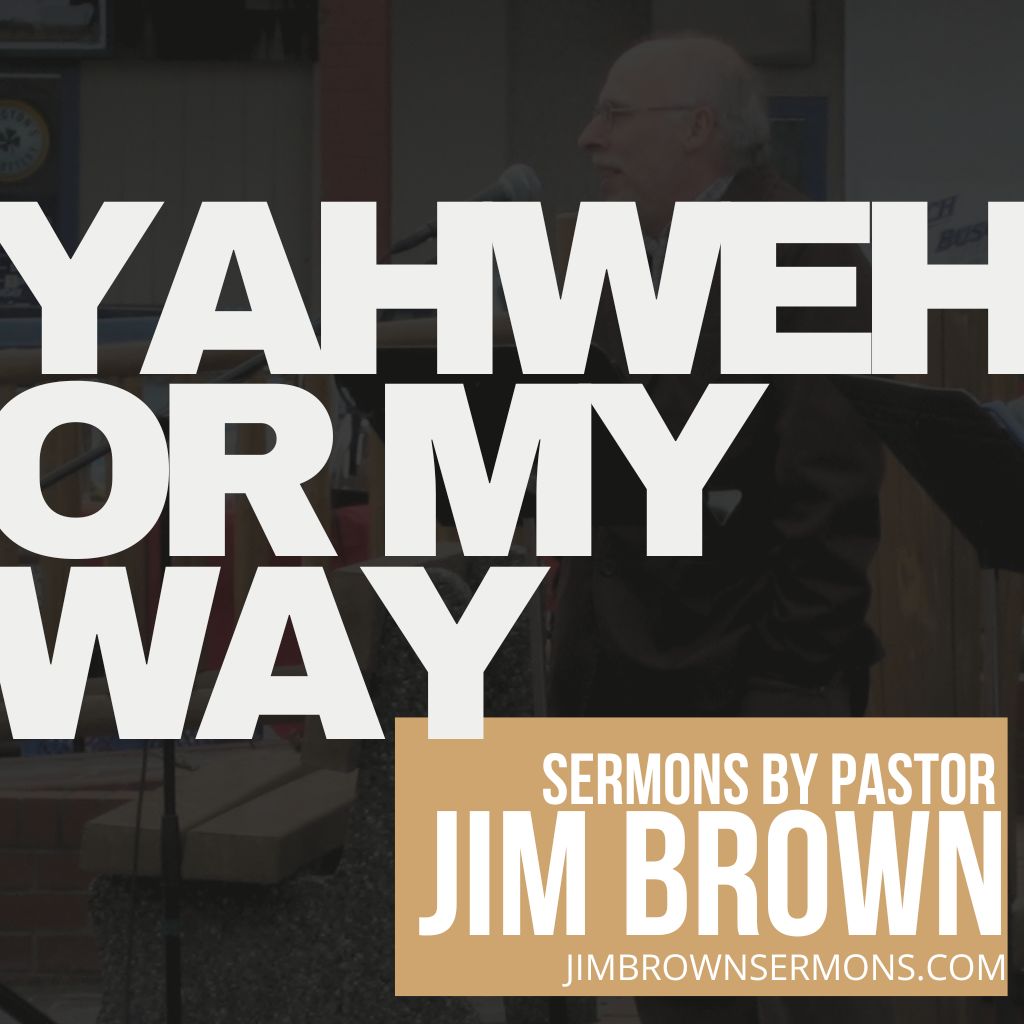
Yahweh Or My Way | Lean Not on Your Own Understanding
Exodus 1–17
Trusting Yahweh When Life Doesn’t Make Sense
Life rarely unfolds the way we expect. We make plans, set goals, and chase after what seems best—only to hit roadblocks, delays, and unexpected detours. In those moments, we’re faced with a choice: lean on our own understanding or trust Yahweh.
This choice is nothing new. The Israelites faced it during their journey from Egypt to the Promised Land. The Red Sea crossing, their struggles in the wilderness, and their constant questioning of God’s plan all point to the battle we face today—trusting Yahweh’s way over our own.
In Exodus 1-17, we see how God leads His people with purpose, even when His timing doesn’t align with human expectations. The question is, will we surrender to God’s plan, or will we resist, trying to take control ourselves?
Waiting on God: The Test of Faith
Waiting is one of the hardest things we do. Our culture teaches us to rush, achieve, and figure things out on our own. But Yahweh’s way isn’t about speed—it’s about trust.
The Israelites spent 400 years in Egypt, waiting for deliverance. That’s longer than the United States has existed as a nation. Generations came and went, wondering when God would act. Then, in Exodus 2:24-25, everything changed:
“God heard their groaning, and he remembered his covenant promise to Abraham, Isaac, and Jacob. He looked down on the people of Israel and knew it was time to act.” Exodus 2:24-25 (NLT)
God’s timing is perfect. He sees the full picture. But in the waiting, our faith is tested.
Maybe you’re in a season of waiting—praying for a breakthrough, longing for direction, or wondering why God hasn’t moved yet. The lesson of Exodus is clear: Yahweh is never late, and His delays are not His denials.
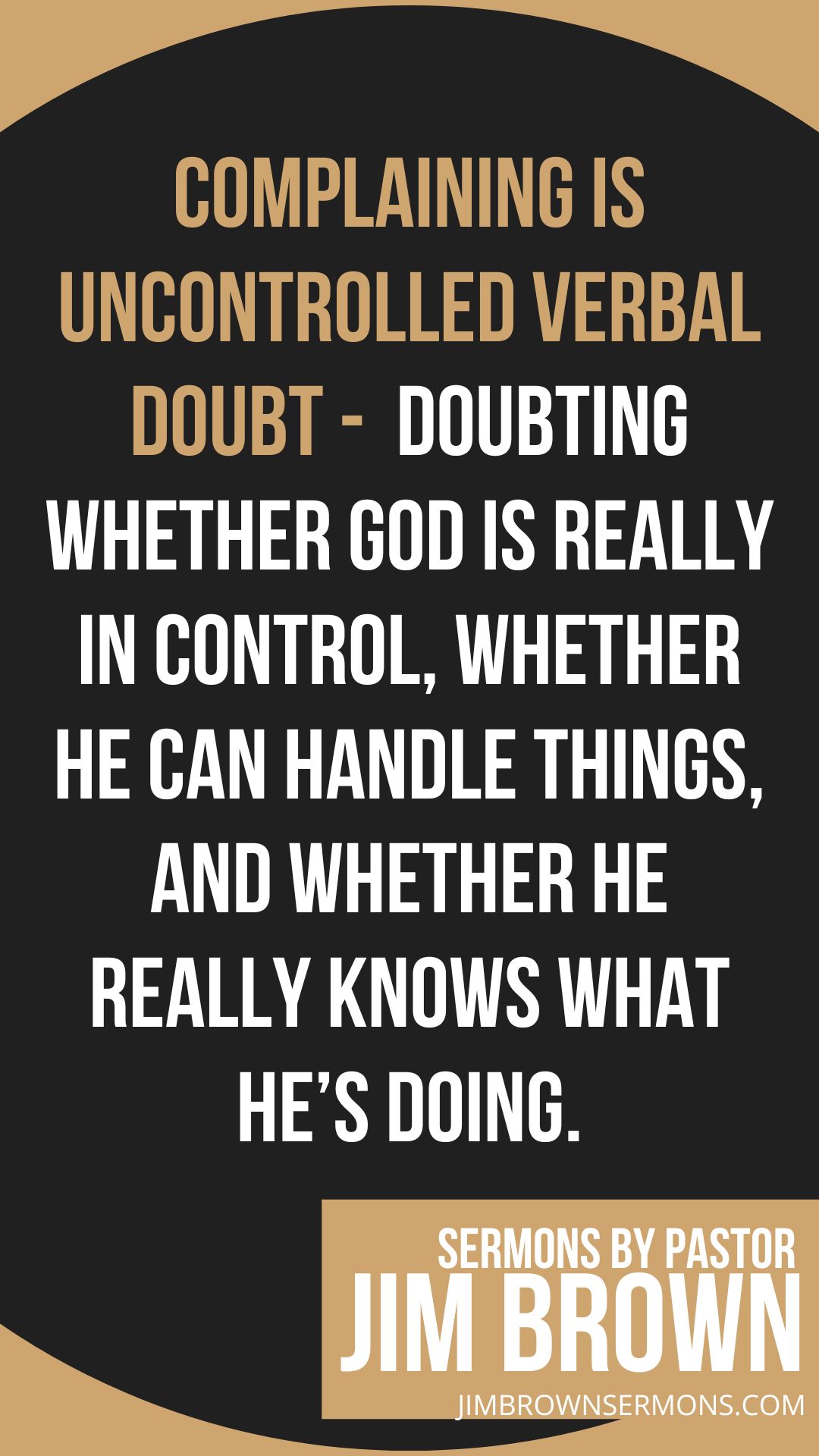
The Great I Am: Trusting God Over Human Reasoning
When God called Moses to lead Israel out of slavery, Moses hesitated. He saw his own weakness instead of God’s strength. When Moses asked for God’s name, the Lord responded:
“I Am Who I Am. Say this to the people of Israel: I Am has sent me to you.” (Exodus 3:14, NLT)
Yahweh is eternal, unchanging, and completely in control. His name reminds us that He is present in every situation. Yet, like Moses, we struggle to believe that.
Proverbs 3:5-6 offers the same challenge:
“Trust in the Lord with all your heart And do not lean on your own understanding. In all your ways acknowledge Him, And He will make your paths straight.” Proverbs 3:5-6 (NASB 1995)
The problem isn’t that God is unclear. It’s that we want to understand everything before we trust Him. We want full explanations, guarantees, and clear signs before we step out in faith. But Yahweh calls us to trust first.
The Red Sea Crossing: Standing Still in Faith
Perhaps one of the greatest demonstrations of faith in Scripture is found in Exodus 14. The Israelites had finally left Egypt, only to find themselves trapped between the Red Sea and Pharaoh’s army. They panicked, crying out to Moses, convinced they were doomed.
Then, Moses said something radical:
“Don’t be afraid. Just stand still and watch the Lord rescue you today. The Egyptians you see today will never be seen again.”
Exodus 14:13, (NLT)
What kind of battle strategy is that? Just stand still?
Yet, that’s exactly what God required. Instead of fighting, fixing, or fleeing, they had to trust Yahweh completely.And when they did, He parted the sea and led them to safety.
What about you? Are you facing a Red Sea moment—an impossible situation where there’s no way forward? Yahweh’s way often requires waiting in faith, trusting that He will make a way where there seems to be none.
Surrender to God: Letting Go of Our Own Way
Trusting Yahweh means more than just believing in Him—it means surrendering our plans, our control, and our desire to do things our way.
The Israelites struggled with this. Even after witnessing miracles, they kept complaining, doubting, and resisting God’s plan.
“The Lord will give you meat to eat in the evening and bread in the morning, for he has heard all your complaints against him. Yes, your complaints are against the Lord, not against us.” (Exodus 16:8, NLT)
Complaining is more than just venting frustration—it’s verbal doubt. It’s saying, ‘God doesn’t know what He’s doing.’
How often do we do the same? Instead of trusting Yahweh, we:
✔️ Try to force solutions
✔️ Rush ahead without waiting
✔️ Doubt God’s provision
✔️ Resist surrendering to Him
But when we surrender to God, we find peace. He is trustworthy, even when His ways don’t make sense to us.
Worship God in Every Season
After their deliverance, the Israelites worshiped:
🎵 Exodus 15 is a song of praise, thanking Yahweh for His faithfulness.
- Worship isn’t just for after the victory—it’s for every season.
- Worship shifts our focus from our problems to God’s power.
When we choose to worship God in the waiting, we declare our trust in Yahweh’s way over our own.
Jesus Christ: The Same Yesterday, Today, and Forever
The story of Exodus isn’t just about ancient Israel—it’s about us. The Passover in Exodus 12 foreshadows Jesus, the Lamb of God who takes away the sin of the world.
“Jesus Christ is the same yesterday, today, and forever.” (Hebrews 13:8, NLT)
Just as the Israelites applied the blood of the lamb to their doorposts for protection, we must apply the blood of Christ to our lives for redemption.
We are no different from the Israelites:
- We resist waiting on God.
- We struggle to trust Yahweh’s way.
- We want control.
But Jesus calls us to let go of our way and follow Him.
Final Challenge: Yahweh’s Way or Your Way?
Are you trying to figure life out on your own?
Are you questioning God’s timing?
Are you stuck in a Red Sea moment, wondering if there’s a way forward?
Trust that Yahweh—the great I Am—knows what He’s doing.
✔️ Stop striving.
✔️ Stop trying to control everything.
✔️ Stand still and let Yahweh fight for you.
Because His way is always better.
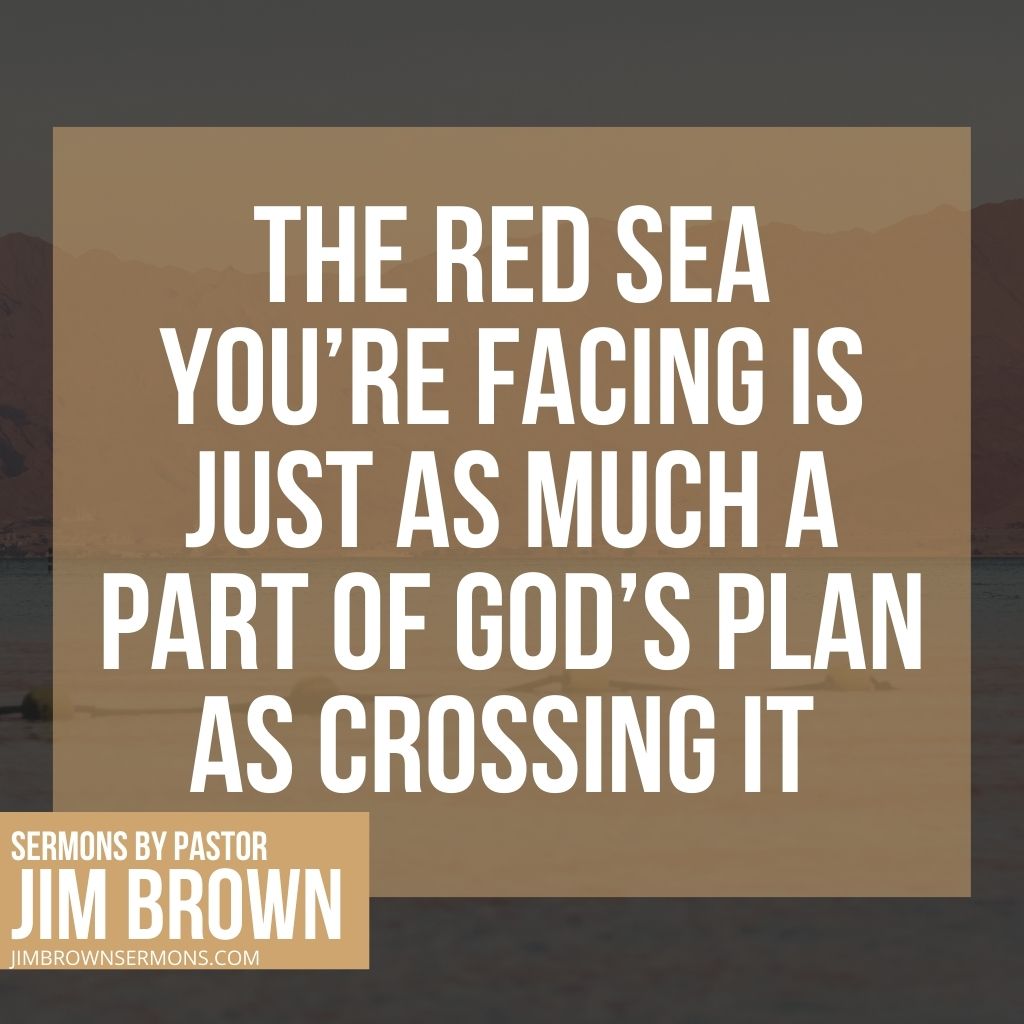
Next Steps: Grow in Your Faith
- Read & Reflect on Exodus 1-17
- Listen to this message on our Christian podcast
- Share your testimony of trusting Yahweh in hard times
Yahweh’s way will always lead to redemption. Trust Him today.
#Yahweh #Faith #TrustGod #LeanNotOnYourOwnUnderstanding #RedSeaCrossing #SurrenderToGod #JesusChristTheSameYesterdayTodayAndForever #ChristianSermons #BibleTeaching
More Resources and Sermons
If you’re looking to dive deeper into Christian podcasts, faith and prayer, and sermons on faith, check out our other resources on the website. Learn more about how to grow in faith, trusting God in hard times, and Christian sermons online to strengthen your walk with God.
Original Sermon Date: October 16, 2005
Thank you for visiting! Some of the links in this post are affiliate links, and we may earn a small commission at no additional cost to you. These are resources that we would recommend regardless of whether we earn a commission or not. The income generated helps cover website maintenance costs, allowing us to continue sharing sermons, resources, and content with you. We appreciate your support!
© 2025 Sermons by Pastor Jim Brown www.jimbrownsermons.com All rights reserved.
RECENT SERMONS
Ep 21: HEARTS OF STONE | Dependence on God Unlocks Transformation
When faith over feelings fails, dependence on God unlocks true transformation. Grow stronger in faith and prayer through this powerful Christian podcast.
DEV 1: WHEN YOU’RE TIRED OF HOLDING IT ALL TOGETHER | Trust In God
Feeling overwhelmed? Learn how to trust in God, surrender control, and find peace through this encouraging devotional based on Haggai 1:5.
Ep 20: Back TO BASICS | The Life-Changing Call to Surrender to God
When life feels off track, it’s time to surrender to God. This powerful message reveals how faith, identity, and revival begin with full surrender.
Ep 19: IT’S ALL DOWNHILL FROM HERE | Submit to God for Real Freedom
Ep 18: THINKING BACK LOOKING AHEAD | God’s Love Never Fails
Find hope in the midst of uncertainty as this sermon reveals how God’s love, mercy, and faithfulness remain steady—even when life doesn’t go as planned.
EP 17: WE NEED A KING | Finding True Security in God
Feeling lost and insecure? True security in God comes from trusting Him completely. Learn how seeking God brings peace and strength.





